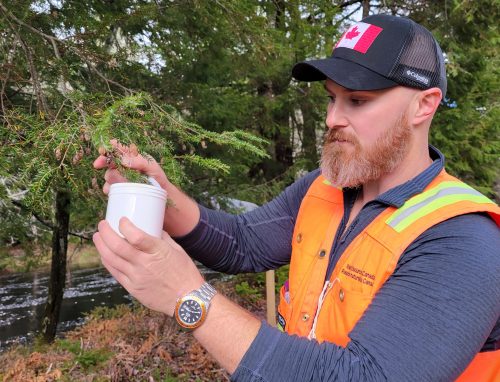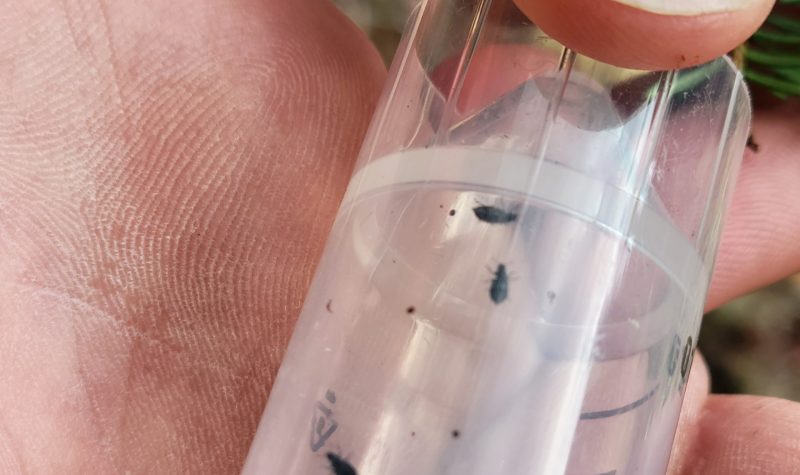Scientists are hopeful that a beetle from BC will stop a pest threatening hemlock trees across the province.
The Hemlock Woolly Adelgid or HWA, is a small aphid-like insect that kills hemlock trees by eating the food and water the tree stores at the base of its needles.
Kejimkujik National Park has banned bringing firewood into the park to keep the pest out but efforts to eradicate the Adelgid have so far, not been successful.
Dr. Lucas Roscoe is part of a Canadian Forest Service team that is bringing a beetle from British Columbia to Nova Scotia in hopes it will be effective in eradicating HWA. He says the Laricobius is a species of beetle, indigenous to BC which feeds on only one thing, the hemlock woolly adelgid.
Roscoe says scientists are always cautious about introducing a non-native species into a new environment.
“..[the Laricobuis is] similar to, like a ladybug, not as big as a ladybug and actually about the size of a pinhead,” said Roscoe. “It's about you know, two maybe three millimeters long. They’re small, they're black, they're pretty nondescript but they're a really important predator of hemlock woolly adelgids.”

Dr Lucas Roscoe releases the Laricobius beetle in Kejimkujik. Photo courtesy Natural Resources Canada
The beetle has kept the Adelgid in check in BC.
Roscoe says 3,000 of them have been collected and brought to Nova Scotia this fall to determine if they can survive this province’s colder climate over winter.
“We know the insect can find HWA in the field and we know it can eat can it. We know it can develop on it but the one thing we don't know is whether or not it can actually survive the winters that can sometimes be quite harsh in Nova Scotia,” said Roscoe. “And the goal of what we were doing this fall and into this winter is to kind of put populations out there and see if we can actually recover them in the spring.”
The Laricobius beetles have been released in several locations across Queens and Shelburne counties and just outside Bridgewater.
Roscoe says the work to protect the hemlocks is being taken seriously and has spurred a collaborative effort between several federal and provincial agencies including the Canadian Forest Service, Canadian Food Inspection Agency and Parks Canada as well as Nova Scotia’s Departments of Natural Resources and Renewables, and Environment and Climate Change.
Roscoe says this is a long-term project and the work will be carefully monitored to ensure the hemlocks are protected for future generations.
To hear the full interview with Dr. Lucas Roscoe click play below.


